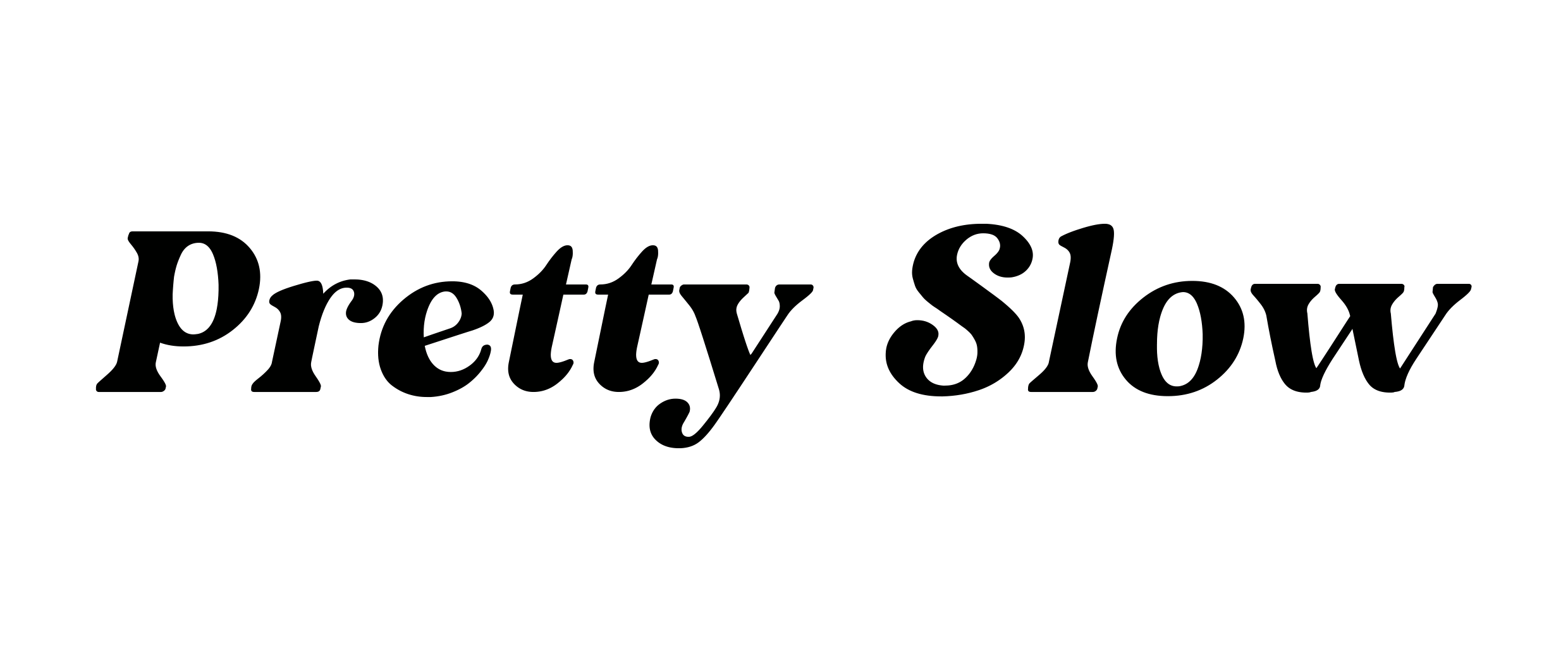Coffee is a staple beverage that millions worldwide rely on for a quick pick-me-up in the morning or an energy boost during the day. But what if we told you that there are healthier coffee alternatives that can provide similar benefits without negative side effects?
Is coffee bad for you?
Coffee is a complex topic when it comes to health. While it does have some potential health benefits, there are also some concerns about its effects on the body.
On the positive side, coffee has been shown to improve cognitive function, boost metabolism, and reduce the risk of some diseases. For example, studies have shown that coffee consumption may reduce the risk of type 2 diabetes, liver disease, and other common health issues. Coffee is also high in antioxidants, which can help protect the body from damage caused by free radicals.
However, there are also some concerns about the negative effects of coffee. One of the main concerns is its caffeine content, which can lead to jitters, anxiety, and sleep disturbances, especially when consumed in high amounts. Additionally, coffee can be acidic, which can cause digestive issues and worsen symptoms of acid reflux. Some people may also be sensitive to other compounds in coffee, such as histamines or tannins, which can cause allergic reactions or other adverse effects.
It’s important to note that the effects of coffee can vary depending on the individual. Some people may be more sensitive to caffeine or other compounds in coffee, while others may be able to consume it without any negative effects. Additionally, the way coffee is prepared can also impact its health effects. For example, adding cream and sugar to coffee can add calories and negate some of its potential health benefits.
Overall, coffee can be a part of a healthy diet in moderation, but it may not be the best choice for everyone. If you experience negative effects from coffee, or if you are concerned about its effects on your health, you may want to consider a coffee alternative or reducing your caffeine intake. It’s always a good idea to speak with a healthcare professional if you have any concerns about your caffeine or coffee consumption.

Are coffee alternatives better for your health?
While coffee has some health benefits, such as increasing alertness, improving cognitive function, and reducing the risk of some diseases, it also has some drawbacks. One of the main concerns with coffee is its high caffeine content, which can lead to jitters, anxiety, and sleep disturbances. Additionally, as we said earlier in the article, coffee can be acidic, which can cause digestive issues and worsen symptoms of acid reflux.
Luckily, several coffee alternatives offer a range of health benefits without negative side effects. Here are some reasons why you should consider making the switch to a healthier coffee alternative:
- Reduced caffeine content
One of the main reasons to consider a coffee alternative is to reduce your caffeine intake. While caffeine can provide a quick energy boost, it can also lead to jitters, anxiety, and sleep disturbances, especially when consumed in high amounts. Coffee alternatives such as herbal tea, rooibos tea, and chicory coffee are caffeine-free and can provide a more gentle energy boost without the negative side effects of caffeine.
- Health benefits
Many coffee alternatives offer unique health benefits that coffee does not. For example, matcha is a type of green tea that is high in antioxidants and contains a compound called L-theanine, which promotes relaxation and can improve cognitive function. Ashwagandha is an adaptogenic herb that is commonly used to reduce stress and anxiety. It can be added to smoothies or warm beverages for a calming effect. Maca is a root vegetable that is often consumed in powdered form. It is known for its energizing and mood-boosting effects and is also rich in antioxidants and minerals.
- Reduced acidity
Coffee is known to be acidic, which can cause digestive issues and worsen symptoms of acid reflux. Coffee alternatives such as herbal tea, rooibos tea, and chicory coffee are less acidic and can be easier on the digestive system. Additionally, some coffee alternatives, such as golden milk and mushroom coffee, contain anti-inflammatory ingredients that can help soothe the digestive system.
- Unique flavours
Coffee alternatives offer a range of unique flavours that can be a fun and interesting change from traditional coffee. For example, rooibos tea has a nutty, slightly sweet flavour, while chicory coffee has a rich, slightly bitter flavour that is similar to coffee. Golden milk is a traditional Indian drink made with turmeric, ginger, and other spices that provide anti-inflammatory and antioxidant benefits. Mushroom coffee is made with medicinal mushrooms, such as chaga and lion’s mane, that provide a range of health benefits, including improved focus and immune function.
- Environmentally friendly
Coffee production can have a significant environmental impact, including deforestation, soil erosion, and water pollution. Choosing a sustainably sourced coffee alternative, such as herbal tea or rooibos tea, can help reduce your environmental footprint.

What are the best coffee alternatives on the market?
If you’re looking for a coffee alternative, there are several options to choose from, depending on your taste preferences and health goals. Here are some popular coffee alternatives:
- Herbal tea: Herbal teas, such as chamomile, peppermint, and ginger, are caffeine-free and offer a range of health benefits.
- Yerba mate: Yerba mate is a traditional South American tea containing caffeine that provides a balanced, sustained energy boost.
- Dandelion root: Dandelion root tea is caffeine-free and has a slightly bitter, nutty flavour similar to coffee.
- Golden milk: Golden milk is a traditional Indian drink made with turmeric, ginger, and other spices that provide anti-inflammatory and antioxidant benefits.
- Mushroom coffee: Mushroom coffee is made with medicinal mushrooms, such as chaga and lion’s mane, that provide a range of health benefits, including improved focus and immune function.
- Roasted barley tea: Roasted barley tea, also known as mugicha in Japan, is a caffeine-free beverage with a nutty, toasty flavour that is often served cold in the summer months.
- Rooibos tea: Rooibos tea is a caffeine-free herbal tea that is rich in antioxidants and has a slightly sweet, nutty flavour.
- Carob powder: Carob powder is a natural sweetener made from carob tree pods. It has a rich, chocolatey flavour and can be used as a coffee substitute.
- Matcha: Matcha is a type of powdered green tea rich in antioxidants and provides a sustained energy boost without the jitters. It contains a unique compound called L-theanine, which promotes a state of relaxed alertness and can improve cognitive function.
- Ashwagandha: Ashwagandha is an adaptogenic herb commonly used to reduce stress and anxiety. It can be added to smoothies or warm beverages for a calming effect.
- Maca: Maca is a root vegetable often consumed in powdered form. It is known for its energizing and mood-boosting effects and is rich in antioxidants and minerals.
- Cacao: Cacao, the raw form of chocolate, contains compounds called flavanols that have been shown to improve cognitive function and reduce inflammation. It can be consumed as a hot chocolate or added to smoothies or oatmeal for a rich, chocolaty flavour.
- Chicory coffee: is a coffee alternative made from roasted chicory root. Chicory root is a natural coffee alternative that is caffeine-free and rich in inulin, a type of prebiotic fibre that promotes gut health. It has a rich, slightly bitter flavour, similar to coffee but caffeine-free.
In conclusion, while coffee can provide some health benefits, it also has some negative side effects that can be avoided by switching to a healthier coffee alternative. Coffee alternatives such as herbal tea, rooibos tea, and chicory coffee offer unique flavours and health benefits that can be a fun and interesting change from traditional coffee. Additionally, coffee alternatives can be gentler on the digestive system and provide a more sustained energy boost without the jitters and anxiety associated with caffeine. So why not give a coffee alternative a try and see how it makes you feel? Your body (and taste buds) might just thank you for it!
Pictures: Samson Katt / Lina Kivaka


